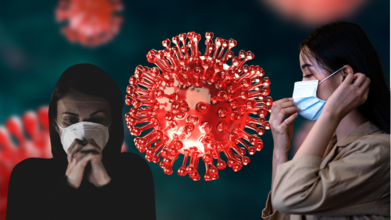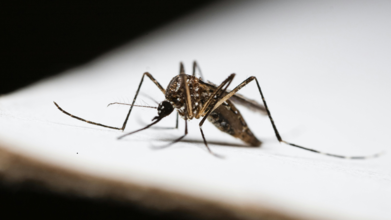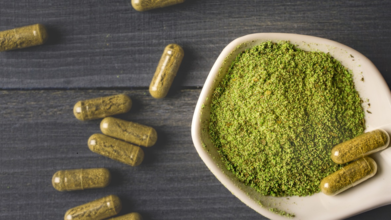- Health Conditions A-Z
- Health & Wellness
- Nutrition
- Fitness
- Health News
- Ayurveda
- Videos
- Medicine A-Z
- Parenting
- Web Stories
Chris Martin Falls While Performing In Australia, Severe Effects Of Back Injuries And How To Prevent Them

Chris Martin In Concerts (Credit- Getty Images)
During a recent Coldplay concert in Melbourne, frontman Chris Martin experienced a frightening fall through an open trap door. On Sunday, Nov 3rd the British rock band had been performing when Chris Martin fell backwards into the trap door on stage. The incident, captured on video and widely shared on social media, shows Martin walking backwards on a raised stage when he suddenly disappears from view. Fortunately, quick-thinking crew members were able to assist him.
Despite the unexpected mishap, Martin displayed his characteristic humour, joking about the near-miss and thanking the crew for their help. He exclaimed it wasn’t planned and how it almost became a YouTube moment! The band continued their performance, undeterred by the incident. These things are quite common during concerts as performing on stage can get quite messy and scary when something goes wrong.
While the singer played it off very professionally, these incidents can lead to serious injuries and affect people for a lifetime if not dealt with properly.
What Can These Back Injuries Lead To?
A bad fall can have significant long-term consequences. Even seemingly minor injuries can lead to chronic pain, affecting joints, muscles, or nerves. These injuries can limit mobility, making everyday tasks challenging. In some cases, falls can damage cartilage, leading to the development of arthritis. Head injuries resulting from falls can cause lasting neurological issues, such as persistent headaches, dizziness, or cognitive difficulties. Moreover, the fear of falling can lead to anxiety and depression, further impacting quality of life. It's crucial to seek medical attention after a fall, even if symptoms seem minor, to prevent potential long-term complications.
How to Prevent These From Becoming Long-lasting Conditions?
While most back injuries heal with time and proper care, some can lead to chronic pain and limited mobility. To minimize the long-term impact of a back injury, it's crucial to take the following steps,
Seek Immediate Medical Attention
Promptly consulting a healthcare professional is crucial to receive accurate diagnosis and appropriate treatment. Early intervention can help prevent complications and accelerate the healing process.
Undergo Physical Therapy
Physical therapy is a valuable tool in managing back pain. A qualified physical therapist can design a personalized exercise program to strengthen back muscles, improve flexibility, and reduce pain.
Utilize Over-the-Counter Pain Relief
Non-steroidal anti-inflammatory drugs (NSAIDs) can provide temporary relief from pain and inflammation. However, it's important to consult a doctor before starting any new medication.
Prioritize Rest and Avoid Strenuous Activity
Adequate rest is essential for the body to heal. Avoid activities that may aggravate the injury, such as heavy lifting or prolonged sitting or standing. Many people think if they work harder it won’t affect their backs but that is not true, take the help of trainers for this.
Maintain Good Posture
Proper posture can help alleviate existing back pain and prevent future problems. Pay attention to your posture while sitting, standing, and lifting objects. Many people tend to slouch and keep their backs bent while sitting and that is not healthy, as it can lead to back problems.
Create an Ergonomic Workplace
If your job requires prolonged sitting or standing, investing in ergonomic chairs, desks, and other equipment can significantly reduce strain on your back. Office goers spend a large chunk of their day on the chair so make it as back-friendly as possible.
Can You Take Antibiotics For Covid-19? Here Is What The WHO Says Now

Back in 2020, the world went on an involuntary vacation. Borders shut, masks went up, and hand sanitiser became the new perfume. Fast forward five years, and Covid-19 is still lurking about and as the virus continues with newer variants like Stratus, currently rising in the US, a familiar question keeps popping up: Can I take antibiotics for Covid? The World Health Organization (WHO) has an answer.
New WHO Guidelines Say “No” to Unnecessary Antibiotics
The WHO has made it clear that antibiotics are not your Covid cure. Even if you are lying in bed with a fever, unless there is actual proof of a bacterial infection, antibiotics should not be part of your recovery plan. According to the updated guidance, even patients with severe Covid-19 should not be given antibiotics by default. The only exception is when there is genuine clinical suspicion of a concurrent bacterial infection. Otherwise, it is a waste and potentially harmful.“For patients with non-severe COVID-19 and a low clinical suspicion of a concurrent bacterial infection, we recommend no empirical antibiotics,” the WHO said.
Why This Change Now?
When Covid-19 first hit the world, doctors prescribed a lot of medicines, including antibiotics. But over time, researchers have wondered if all those pills are doing anything. A recent meta-analysis reviewed patient outcomes and found that antibiotics did not make a difference in people who did not have a bacterial infection.But this is not just about ineffective treatment. It is about antimicrobial resistance.
What Happens When There is Antibiotic Overuse?
When we misuse antibiotics, meaning taking them when we do not need to or not finishing a proper course, we help bacteria evolve into superbugs. These resistant bacteria are tough and do not cure with your average antibiotics. Antimicrobial resistance is already a global health crisis. By needlessly tossing antibiotics at Covid-19, we are just speeding up the problem.What Should You Do If You Get Covid Now?
If you test positive and your symptoms are mild, your best bet is rest, fluids, paracetamol for fever, and patience. Pop the antibiotics only when your doctor prescribes. Also, Covid is now handled like any other respiratory illness. That is why WHO has also scrapped older Covid-specific guidelines that no longer apply to the post-pandemic world.“Notable changes to COVID-19 disease over this time have been overall reduced infection rates and reduced disease severity,” the WHO said, adding that "Care for patients with COVID-19 has become more integrated with usual healthcare systems.”
In a nutshell, you cannot take antibiotics for Covid unless you also have a bacterial infection. And that is for a healthcare professional to decide. The WHO wants everyone, from doctors and pharmacists to patients and panic-buyers, to get on the same page. Antibiotics are powerful tools, and using them wisely could literally save the world.
However, the global health body warned that the virus continues to evolve in terms of infectivity, immune escape, and disease severity. “This guideline robustly and transparently addresses the changing landscape and
evidence availability, and the continual development of treatment and management strategies for Covid-19,” the WHO added.
West Nile Virus Detected In Mosquito Samples From Chatham-Kent

Credits: Canva
Chatham-Kent, a single-tier municipality in the Southwestern Ontario, Canada collected and trapped mosquitoes on July 30 from a trap in Ridgetown have been tested. The results are confirmed by the CK Public Health, confirming the mosquitoes positive for West Nile Virus.
What Is West Nile Virus?
As per the Centers for Disease Control and Prevention (CDC), West Nile virus is the leafing cause of mosquito-borne diseases. It is most commonly spread to people by the bite of an infected mosquito. Cases of West Nile occur during the mosquito season, which starts in the summer and continues through fall.
As of now, there are no vaccines to prevent or medicines to treat West Nile in people, notes CDC. The good thing? Most people infected with West Nile virus do not feel sick. About 1 in 5 people who are infected develop a fever and other symptoms. About 1 in 150 infected people develop a serious, or fatal illness. The best way to deal with this is by preventing mosquito bites.
Also Read: What is Glioma? Walking Dead Actress Kelly Mack Dies at 33 After Battling Rare Brain Cancer
The virus belongs to a group of viruses called flaviviruses. St Louis encephalitis virus and Powassan virus are the two other flavivirus that are also circulated in the Americas.
How Does It Spread?
West Nile virus circulates in the environment between mosquitoes, and the species is called Culex. It also circulates via birds. People become infected when the mosquitoes feed on infected birds and then bite people. The CDC says that people are dead-end hosts, because unlike birds, they do not develop high enough levels of virus in their bloodstream and cannot pass the virus on to other biting mosquitoes.
The virus is rarely transmitted from person-to-person by blood transfusion, organ transplantation, and mother to baby, during pregnancy, delivery, or breastfeeding. Because the virus can be transmitted through blood and organ transplantation, persons who were recently diagnosed with West Nile virus infection should not donate blood or bone marrow for 120 days following infection.
Birds And West Nile
The virus is transmitted to birds through the bite of an infected mosquito. The mosquitoes who become infected are through biting infected birds. Some birds that are predators like hawks and owls or scavengers like crows may become infected after eating sick or dead birds that were already infected by the virus. If birds eat infected mosquitoes then they too could become infected. Although some infected birds, especially crows and jays, frequently die of infection, most birds survive.
The CDC notes that there is no evidence that a person can get infected from handling live or dead infected birds. However, you should avoid bare-handed contact when handling any dead animal. If you must pick up a dead bird, use gloves or an inverted plastic bag to place the bird in a garbage bag.
What Happens If A Person Is Infected By West Nile Virus?
While most people have no symptoms, some may develop the following symptoms:
- Fever
- Headache
- Body Ache
- Fatigue
- Stiff Neck
- Nausea
- Difficulty Swallowing
- Vomiting
- Paralysis
Anyone with such severe symptoms must seek medical attention. For infants and older individuals, the risk is even more, as their immune systems are compromised.
The CK Publik health has urged residents to protect themselves from the virus by:
- Wearing light-coloured clothing, including long-sleeved shirts, long pants and socks.
- Using insect repellent containing DEET or Icaridin.
- Staying indoors from dusk to dawn, when mosquitoes are most active.
- Ensuring that all door and window screens are tight and free of holes.
- Eliminating sources of standing water to prevent mosquito breeding.
As RFK Jr Cracks Down On 7-OH, A Washington Family Issues Warning Against Kratom As Their Son Dies After Taking The OTC Supplement

Credits: University of Utah
In a tragic case that has reignited scrutiny over unregulated herbal supplements, a family from Washington state is sounding the alarm on kratom, a substance often sold as a natural alternative to pharmaceuticals, after their 37-year-old son, Jordan McKibban, died from using it.
Their warning comes just as Health and Human Services Secretary Robert F. Kennedy Jr announces a federal crackdown on a powerful compound derived from kratom known as 7-hydroxymitragynine, or 7-OH.
What is Kratom?
Kratom is a plant-based product derived from the Mitragyna speciosa tree, native to Southeast Asia. Traditionally used in countries like Thailand and Malaysia for pain relief and energy boosts, it has in recent years gained popularity in the U.S. as an over-the-counter supplement. It's sold in gas stations, smoke shops, and online in various forms, powders, pills, teas, and even gummies.
At low doses, kratom acts as a stimulant, while at higher doses it behaves like a sedative. However, experts warn that kratom has addictive properties, and its effects can mirror those of opioids. It is not regulated by the US Food and Drugs Administration (FDA), and while it is legal in many parts of the U.S., the agency has described it as a “drug of concern.”
Also Read: 'Your Gut Is Your Second Brain': Why Looking Fit Can Still Mean You Are Unhealthy
What is 7-OH and How Is It Related?
7-hydroxymitragynine (7-OH) is a naturally occurring compound found in kratom, and it is far more potent. While kratom itself contains a mixture of alkaloids, 7-OH is an isolated extract or concentrated form that interacts with the body’s opioid receptors much more strongly.
Medical experts say 7-OH can be more potent than morphine. “7-OH is an opioid that can be more potent than morphine,” FDA Commissioner Martin Makary recently stated. The FDA has proposed that 7-OH be classified as an illicit substance, citing rising concerns over its addictive potential and opioid-like effects.
A Family’s Grief and Warning
Jordan McKibban, according to his mother Pam Mauldin, was cautious about pharmaceutical medications and sought alternative solutions for managing anxiety and other health concerns. On the day of his death in 2022, he mixed kratom into his lemonade, a routine he had reportedly followed before.
Mauldin found her son unconscious and was unable to revive him. An autopsy later confirmed that his death was linked to mitragynine, one of kratom’s primary alkaloids.
“There have been hundreds of people killed from this, and they don’t pull it. The government doesn’t step in,” Mauldin told The New York Post. “I’ve lost my son. I’ve lost the grandchildren I could have had. I’ve lost watching him walk down the aisle.”
She added that the kratom packages in her son’s possession had no dosage instructions or warning labels, a dangerous loophole that remains common due to the lack of FDA regulation.
RFK Jr’s Crackdown on 7-OH
Speaking at a July 29 press conference, Health and Human Services Secretary RFK Jr shared his personal experience with addiction, stating that the easy availability of kratom products, many sold at gas stations and marketed in child-friendly formats like gummy bears, is “a sinister, sinister industry.”
Kennedy and FDA Commissioner Makary announced they were beginning the process to classify 7-OH as an illicit drug. The move, if approved by the DEA, would restrict sales and manufacturing of 7-OH-based products.
“I became an addict because heroin was so available, but I had to go to the South Bronx or the Lower East Side,” Kennedy said. “Now, you can go to any gas station. They’re marketing them to children.”
While the FDA crackdown currently targets 7-OH, not kratom in its entirety, the announcement has sparked broader concern about the regulation, or lack thereof, of over-the-counter supplements that claim to be “natural” but may carry serious health risks.
The Regulatory Grey Zone
Despite kratom’s accessibility, the FDA has not approved it for any medical uses and continues to warn consumers about potential health risks, including addiction, liver damage, and even death. Between 2011 and 2017, national poison control centers received 1,807 calls related to kratom exposure.
Dr. Robert Levy, a family and addiction physician, pointed out that many people don’t realize the distinction between traditional kratom and 7-OH. “There’s always been concern around kratom because if you take enough of it, kratom does act like an opioid. People can become addicted and have withdrawal or overdose,” he said.
He added that the 7-OH version is “much more addicting and much more problematic” and often sold without consumers’ awareness of what they’re ingesting.
A Growing National Concern
Public interest in kratom exploded recently after a viral TikTok video recounted a teenage boy attempting to steal a Feel Free tonic, a kratom-infused drink, from a stranger outside a gas station. Though the company behind the drink insists it contains only trace levels of 7-OH and now restricts sales to adults over 21, the case has highlighted the growing concern around how these products are marketed and accessed by young people.
Some companies, like Botanic Tonics, have supported the FDA’s move against synthetic derivatives like 7-OH while continuing to advocate for access to traditional kratom products with a long history of use. Still, experts argue that even natural kratom carries risk.
© 2024 Bennett, Coleman & Company Limited

